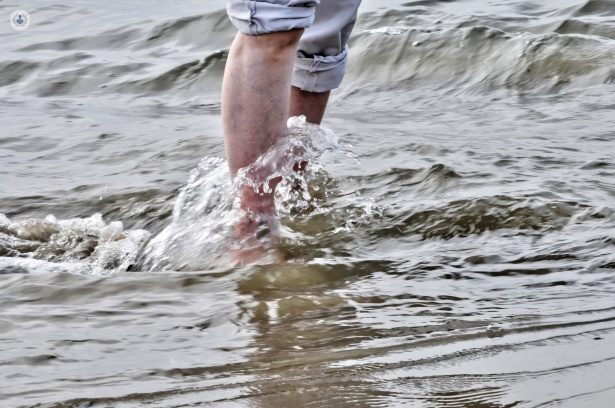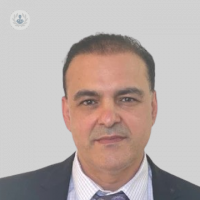Debunking myths about varicose veins surgery: What you really need to know
Written in association with:Leading consultant vascular surgeon Mr Hassan Badri explores everything you need to know about varicose vein surgery.

What are varicose veins?
Varicose veins are enlarged, twisted veins that often appear dark purple or blue. They typically develop in the legs and can cause pain, swelling, and a heavy, aching feeling. This condition occurs when the valves within the veins, which help blood flow back to the heart, become weak or damaged. As a result, blood accumulates in the veins, causing them to expand. Why consider surgery? Varicose veins can be more than just a cosmetic issue.
Why consider surgery?
Varicose veins can be more than just a cosmetic concern. They may lead to discomfort, pain, and complications such as ulcers, bleeding, and blood clots. If you experience persistent pain, swelling, skin discolouration, or if your varicose veins impact your daily life, surgery might be an option to consider.
What types of surgery are available?
Several surgical options exist for treating varicose veins. Here are some common procedures:
Sclerotherapy: A special solution is injected into the vein, causing it to scar and close. This redirects the blood flow through healthier veins. This procedure is commonly used to treat smaller varicose veins and spider veins.
Laser treatment: Also known as endovenous laser therapy (EVLT), this technique uses laser energy to heat and close off the affected vein. It is minimally invasive and performed under local anaesthesia.
Radiofrequency ablation (RFA): Similar to EVLT, RFA uses radiofrequency energy to heat and seal the vein. This method also involves a small incision and local anaesthesia.
Vein stripping and ligation: In this more traditional surgery, the affected vein is tied off (ligation) and then removed (stripping) through small incisions. It is usually reserved for more severe cases.
Ambulatory phlebectomy: This procedure involves removing smaller varicose veins through tiny punctures in the skin. It is done under local anaesthesia and is often combined with other treatments.
What should you expect during recovery?
Recovery time can vary depending on the type of surgery performed. Minimally invasive procedures like sclerotherapy, laser treatment, and radiofrequency ablation typically involve shorter recovery periods. Patients can often resume normal activities within a few days, although strenuous exercise should be avoided for at least two weeks. You may need to wear compression stockings to support blood flow and reduce swelling.
For more invasive surgeries like vein stripping, recovery may take longer. It's common to experience bruising, swelling, and some pain around the treated areas. Full recovery can take several weeks, and your doctor will provide specific aftercare instructions to ensure proper healing.
Are there any risks?
As with any surgery, varicose vein treatments come with potential risks. These may include infection, bleeding, nerve damage, or recurrence of varicose veins. Minimally invasive procedures tend to have fewer risks compared to traditional surgery. It's crucial to discuss these potential risks with your doctor to make an informed decision.
How effective is varicose vein surgery?
Surgical treatments for varicose veins are generally effective, with most patients experiencing significant improvement in symptoms and appearance. However, new varicose veins can develop over time, so it's essential to maintain a healthy lifestyle and follow your doctor's advice to prevent recurrence. Regular exercise, weight management, and avoiding prolonged periods of standing or sitting can help keep your veins healthy.
By understanding the available treatments and what to expect, you can make a more informed decision about managing your varicose veins and improving your quality of life.
If you would like to book a consultation with Mr Badri, do not hesitate to do so by visiting his Top Doctors profile today.


